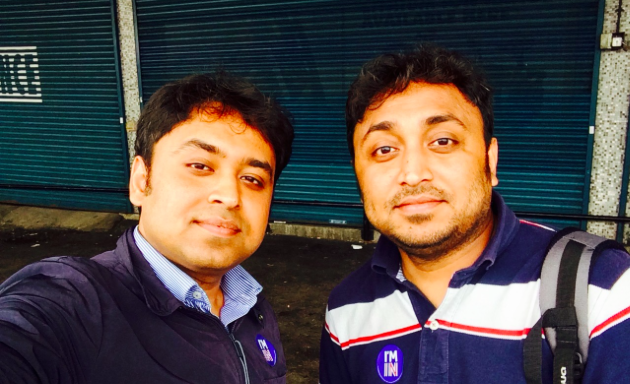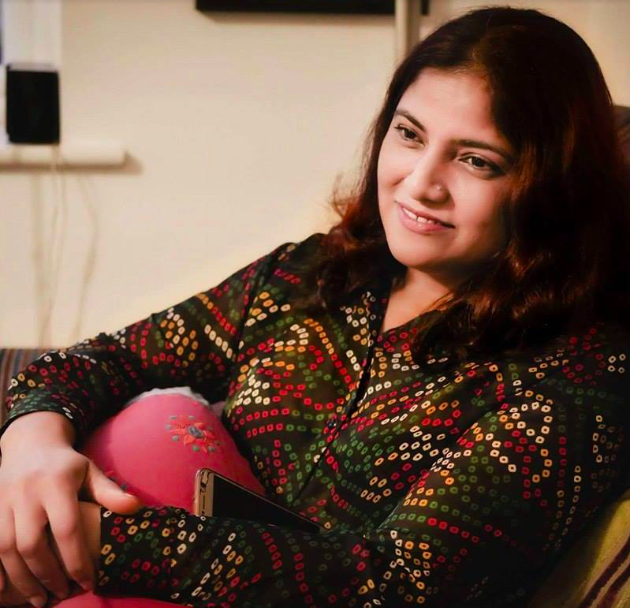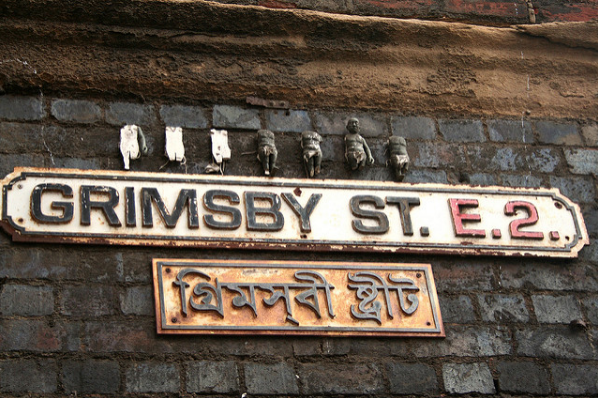Complex questions and important decisions
On the 23rd of June, the British people voted on a very important decision, a decision that would determine the country’s future: Leave or Remain in the European Union. Even though this is an incredibly complex question, touching on all parts of social life and organisation, the Vote Leave campaign managed to steer the discussions to one single omnipotent problem: immigration. It seemed to be addressing a need to talk in the British society. In the past decades Britain has taken a multicultural approach in its policies dealing with immigration. However in the mid-2000s the discourse about culture, cultural differences and the cultural heritage of immigrants changed, with Gordon Brown opening up a discussion on Britishness.
Journey to England
Questions of national belonging and identity continuously resurfaced during my journey through England in June 2016. I was meeting with British-Bangladeshis to talk about their relation to their country of origin in the context of their life in England. The month of June was, from a wider political point of view, a very interesting time to travel, since issues of immigration and assimilation discussed by people in the streets, in pubs and at academic lectures related to the topic of my journey. While I was in England, I interviewed British-Bangladeshis in Manchester and London about their perception of and relation to Bangladesh transforming over the years in the diaspora. My interviewees were very different in terms of their age, gender, profession and their relationship with England. Inevitably, we came to talk about Brexit and the related discussion about immigration, even though I didn’t ask any structured questions about it during our interviews. In this article, I want to share the opinions of people I met during my journey and add to this edition new perspectives, that rarely make their way into the mainstream media.
Access to the discourse
Many of the people I interviewed were immigrants to Britain and therefore explicitly concerned with the impact that changes to immigration would have in case of a secession from the EU. The Annana Community Centre in Manchester, which is run by British-Bangladeshi women, provides advice for navigating the British system and everyday many newly arrived migrants from Italy, Spain and France meet there. Interestingly, many of them are unaware of the political changes ahead even though they have plans to invite more relatives to Britain.
Dipu
A striking example is the following scene I experienced in the Annana Office: Dipu, an Italian-Bangladeshi volunteer, who has settled in England three years ago, asked her British born colleague Hasina about the meaning of some flyers she received in her mail. Hasina quickly explained to her why the hateful information sheets of the “Out” campaign were very bad and advised her to throw them away as quickly as possible. While Dipu is going to be directly affected by changes in immigration laws for European citizens, her knowledge of English is limited and therefore she is excluded from the discussions on immigration to England, which concern her very much. While she is the central object of the discourse, her possibilities to take part in it and influence her own future are limited.
Sujit and Shumon

A very different example is provided by the British-Bangladeshi brothers Sujit and Sumon. Sujit came to London 11 years ago with a student visa, succeeded in his professional career and recently acquired permanent residency in Great Britain. His brother Sumon´s student permit has expired after seven years in Britain and without a new visa he faces expulsion from the country, where he built himself a life in the last seven years. The British immigration law has toughened over the last years and Sumon was refused a new visa several times. Sujit started looking for alternative paths and found a loophole in the confusing interrelations of EU law. He made plans to move to Ireland to apply more successfully for a visa for his brother. On the night of the 23rd June, the brothers followed the results of the referendum with great tension. When it became clear that Britain voted to leave the EU around 5 in the morning, it meant for Sujit and Sumon that their space to act was shrinking and they would have to be quick to realize the plans. Sumon and Sujit had access to the discourse and cast their vote, however their perspectives are rarely discussed in the public discourse.
Diverging opinions
Jesmin

My British-Bangladeshi interviewees, among them many who already acquired British citizenship or were born in the country held all kinds of attitudes towards the referendum. Jesmin, a Mancunian cultural activist and translator in her forties, who has lived and raised her kids in England for 20 years, expressed her great distress about the vote to leave the EU on Facebook in the following comments, posted within the hours of tension when the results of the referendum were published: “In in in in!”, “If leave wins, it would be down to the inaction and complacence of the remain supporters. Going to bed with an uneasy feeling; I don’t like breakups, especially ones that we’re not so sure about.” “Only 4% majority shouldn’t be enough to leave the EU. Feeling apprehensive about the future.”
Dr. Renu
Dr. Renu, who spend her whole adult life in England and currently works for the local authority in London, expressed similar distress about the decision to leave the EU: “I feel so sad, depressed and shocked because of Brexit. The Bengali people in London faced a lot racism in the 70´s and 80´s and I thought those days are over. This intolerance is terrible”. At the same time she expressed critical views of immigration, paraphrasing slogans of the Vote Leave campaign about eastern European immigrants “ They never stand in the queue and are very uncultured. It is probably because of they are used to communism. They cannot deal with their freedom here. They are also very racist. They don´t like other skin colours. They bring a lot of children from Romania because they are earning more on child benefit than they could otherwise. One woman told me in a whispering voice that she is from Romania, she didn’t want anyone to know.”. A very interesting discrepancy in her discourse emerges, as she negotiates her ideas of tolerance with images of the other prevalent in the British media at the time.
Faisal
Her distress about European immigration was shared by Faisal, a 29 year old London born British Bangladeshi, who is an activist for Palestinian rights and sympathises with left and anarchist politics. To explain his stance against European immigration he told the following story: When he was a teenage boy, he used to earn pocket money by delivering papers. A few months ago, he contacted his old employer again in order to ask for a job for his younger cousin but all the papers were delivered by an adult Polish man now. Faisal was unhappy with this development which he found contributing to problems of young people with migrant backgrounds in London. For him immigration from Europe presented competition for limited access to jobs, education, public spaces and other opportunities, which should be open first and foremost to local youth. It is interesting how he negotiates personal experiences of racial discrimination and migration in his family with the right wing anti-immigration arguments he supports in the Brexit discussions. Faisal argues for example that EU law favours European immigrants over those from Britain´s former colonies and consequently is euro-centric and neo-colonial. When I met Faisal, a fervent supporter of “Out” before the 23rd of June, again some days later, he deeply regretted his own and his country’s vote, abashed by the racist violence springing up all over England.
A Majority for Remain
Next to the people presented above, who were following the political development with great interest, some interviewees were more on the surface or not so much concerned with the referendum. However, they also shared the opinion of the majority that the Vote to Leave would negatively affect Britain and especially immigrants and people with non-English heritage. They feared increasing racism and discrimination in public spaces and the job market.
Conclusion
All in all, the diverse approaches of my interviewees towards the questions on immigration raised by the Brexit campaign reflect their very different social attributes. Next to personal political opinion and the environment, age, gender, profession, length of stay in England and level of English determined their access to the discourse as well as their opinion. There was no general consensus but rather multiple, even opposing opinions shaped by own lived experiences as well as “greater narratives” promoted by politicians and media.
Emilia Henkel
Image 1: Jeremy Weate Attribution-NonCommercial 2.0 Generic








